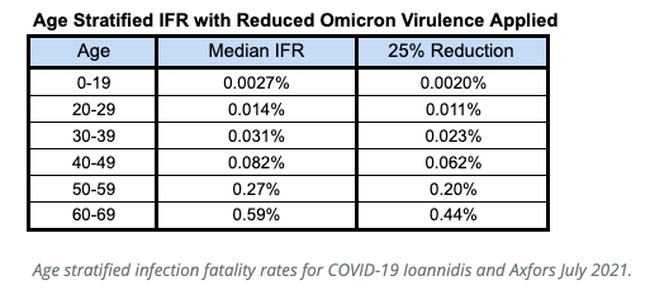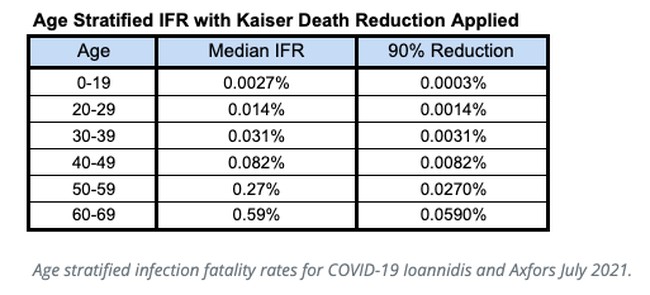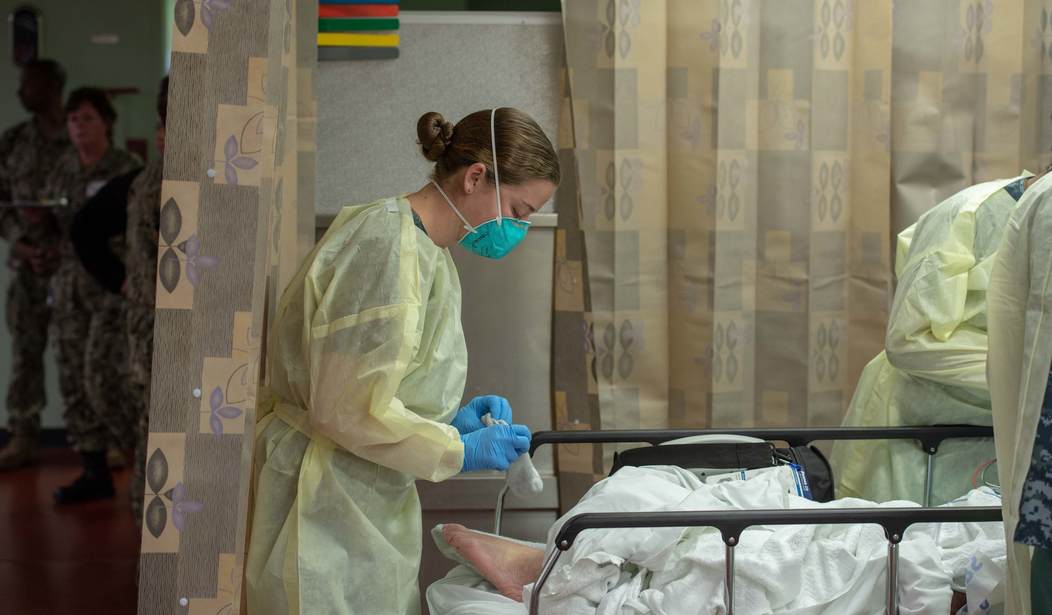A recent study from South Africa (currently in preprint) attempts to explain why the omicron wave of the COVID-19 pandemic caused less severe illness and death than prior waves of other variants. To complete the study, researchers compared the outcomes of 5,144 patients from the fourth wave, where omicron was prevalent, to the outcomes of 11,609 patients from prior waves. They looked at deaths, severe hospitalizations, and all hospitalizations in the 14 days after diagnosis for people aged 20 and older.
The study controlled for vaccination, prior infection, comorbidities, age, and sex. The team concluded:
In the Omicron-driven wave, severe COVID-19 outcomes were reduced mostly due to protection conferred by prior infection and/or vaccination, but intrinsically reduced virulence may account for an approximately 25% reduced risk of severe hospitalization or death compared to Delta.
Their assessment is hopeful for several reasons. First, the risk from COVID has always been age-stratified, with a well-known set of comorbid conditions that increase the risk of severe illness and death. A 25% reduction in risk inherent to the virus itself reduces the risk to everyone. People who are recovered, vaccinated, unvaccinated, and those with risk factors would all face a less lethal virus.
For those under 50 who are otherwise healthy, the risk of severe illness and death was already vanishingly small. The seasonal flu’s generally quoted infection fatality rate (IFR) is 0.1%. According to Dr. Fauci, a pandemic flu may reach 0.2 or 0.3%. In a study that remains in preprint from Cathrine Axfors and Dr. John P.A. Ioannidis from Stanford, the age-adjusted IFR for COVID-19 in July 2021 was below the seasonal flu in every age group below 50.
Recommended: Hospital System Drops Race-Based COVID Treatment Policy After Lawsuit Threats
Applying the 25% reduction in severity estimated in the South African study, and even the IFR for those between 50 and 59, and omicron looks more like a severe flu season.

Other estimates for the reduction in hospitalizations and death with omicron show even more significant reductions in severe disease. A CDC-funded preprint study from Kaiser Permanente studied over 50,000 patients who tested positive for omicron and more than 16,000 sick with delta between Nov. 30, 2021, and Jan. 1, 2022. Among cases first detected in outpatient settings, the analysis found:
- Patients with omicron variant infections were roughly half as likely to have symptomatic hospital admissions.
- The rate of ICU admissions after a positive outpatient test for omicron was 25% the rate for delta infections.
- There was one death from omicron compared to 14 with delta during the study period, resulting in a 91% reduction in the risk of death.
- Zero cases of omicron variant infection received mechanical ventilation, compared to 11 patients with delta variant infections, throughout follow-up.
- The median duration of hospital stay was 3.4 (2.8-4.1) days shorter for hospitalized cases with omicron variant infections than hospitalized patients with delta variant infections. This is nearly a 70% reduction in the average length of stay.
The study also found no significant difference in risk of contracting symptomatic omicron between individuals who had recovered from prior COVID infection and those who had received vaccines, including boosters. It also noted a reduction in severity for the unvaccinated without a documented previous infection:
Reductions in disease severity associated with Omicron variant infections were evident among both vaccinated and unvaccinated patients, and among those with or without documented prior SARS-CoV-2 infection. Prior vaccination against COVID-19 was associated with a dose-dependent lower risk of detection of the Delta variant as compared to the Omicron variant; likewise, Delta variant infections were less commonly detected among cases with documented prior SARS-CoV-2 infection.
When the 90% reduction in deaths in this study is applied to the IFR calculated in July, all age groups fall below the generally cited IFR for the seasonal flu.

The new information should put an immediate hold on vaccine passports and vaccine mandates for children and healthcare workers until we know more. No one would consider mandates for seasonal colds and flu with a vaccine that does not prevent transmission or symptomatic illness. And the data from Kaiser appears to attribute the reduction in IFR to the decreased virulence of omicron at least as much to prior immunity from vaccines or natural infection. The study found a similar reduction in severity of omicron for both the vaccine and COVID naive.
Omicron is looking like the game-changer many experts predicted it would be based on initial data from South Africa. It is time our public health and political leaders start acting like it is. Ending the mandates and emergency powers would be a great start.










Join the conversation as a VIP Member